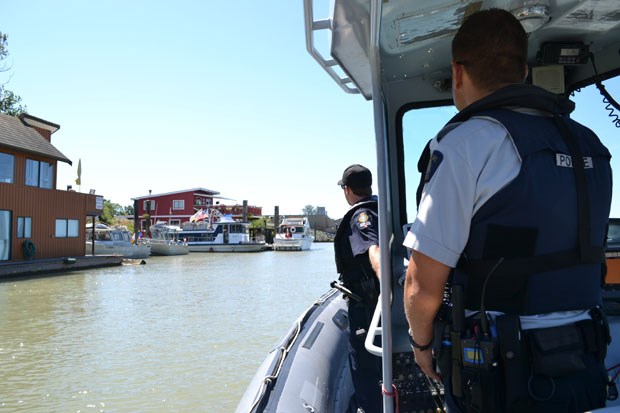With the summer boating season in high gear, and the B.C. Day long weekend upon us, Delta police are reminding boaters to have fun on the water, but to do so responsibly and alcohol free.
Combined with sun, wind, waves and the rocking motion of the boat, the effects of alcohol on the water can be greatly increased, according to the department.
Drinking and boating accounts for approximately 40 per cent of boating-related fatalities on Canadian waterways. To raise awareness and reduce alcohol related deaths, the Canadian Safe Boating Council and Delta police are once again activating Operation Dry Water initiative. Its goal is to discourage the dangerous practice of drinking and boating and in turn increase the safety of everyone on the waterways.
“We have a unified water marine team that we partner with the RCMP,” said Sgt. Cal Traversy. “It is all about water safety and safe boating. Drinking and boating is the same as drinking in a car on land – it’s all the same rules. In the past, throughout the province, we have seen where drinking and boating can end up in disaster, so it’s essentially sending the message about what is right and wrong on the water.”
Federal statutes dictate that, whether or not your craft is motorized, you can be charged with impaired operation of a vessel under the Criminal Code of Canada. This means you can be charged even if you are impaired while operating a canoe and a judge is able to, upon conviction, suspend your boating privileges.
Additionally, drinking and boating is illegal and operators with more than 80 milligrams of alcohol per 100 millilitres of blood could face the following consequences under the Criminal Code:
* 1st offence: at least $1,000 fine
* 2nd offence: at least 30 days of imprisonment
* 3rd offence: at least 120 days of imprisonment.
For additional information on boating safety, visit: www.csbc.ca.



